Today, grids that want to be hypergrid enabled but still allow creators to protect content either have to write custom code — as Kitely did — or filter content based on the current copy, modify and transfer permissions.
For example, some grids might allow you to take content to other grids only if you have created that content yourself, or if the creator distributed it with full permissions.
A more elegant solution, however, is to create a fourth permissions setting — export — and allow creators to decide on an item-by-item basis whether customers are allowed to take that content to other grids or save copies of it via OAR downloads, or export it through any other means.
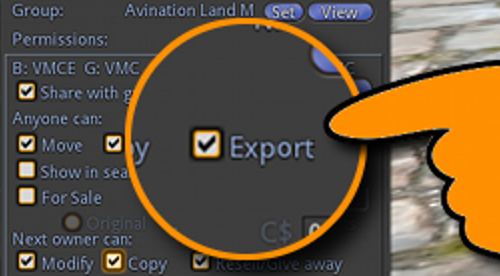
Back in 2013, the closed, commercial Avination grid teamed up with the developers of the Singularity viewer, to create this new export permission setting, but the feature was only partially implemented. The original developers said they were waiting for commercial grids to test it, commercial grids were waiting for developers to finish it up, and people moved on to other things.
Now DigiWorldz grid owner Terry Ford has negotiated with a developer to complete all the work needed to make the export permission fully functional at a price of $800.
He already has raised $300 of the money needed, he told Hypergrid Business. Now he’s calling on other grid owners to contribute as well to make this a public project.
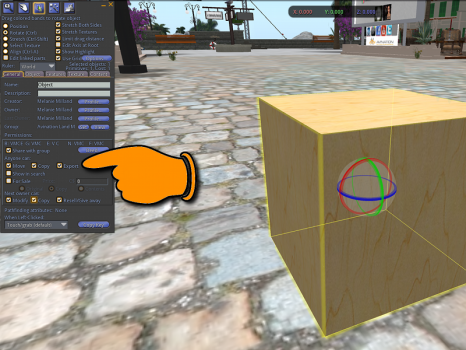
“Our community could then take away one of the biggest arguments from Second Life creators who are afraid of coming to OpenSim grids,” he said. “We could all benefit from the new items brought in from Second Life creators, and we would all probably see an increase in users.”
To make a pledge, email Ford at terry@digiworldz.com and tell him how much you would like to contribute. No payments are expected up front — only after the work is completed.
“The amount doesn’t really matter as much as the participation,” he said. “I want to prove to all the OpenSim developers that we, the community can and will pay for advancements to the platform we all enjoy.”
Ford said he will work with the developer to finish the code, and any grid that supported the project would get the code in order to be able to test it themselves.
“Once we are all certain the feature works as we want, we will then pay what we have offered to the developer,” he said. “I don’t want the money sent to me, and I don’t want any money sent until we are sure the fix is working as it was intended.”
How it would work
The export permission would be a server-side feature. That means that grids would enable it on their own servers, and all content on that grid would then have four permission settings instead of just three.
The grid would decide how to set the permissions for existing content.
For example, all the content a resident created themselves might be set to “export,” but all content they received from someone else might be “no export” since in effect, all content currently on closed grids is “no export.”
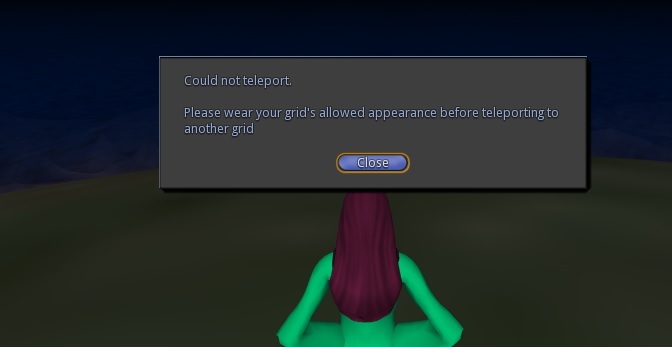
When someone creates new content and decides to give it away or sell it, they would need to use a viewer with the updated code to change the permission. Today, that includes Singularity, Firestorm and Alchemy.
“That overs an overwhelming majority of users, I would guess 99 percent,” YrGrid technical director Cindy Chidester told Hypergrid Business. Chidester is also a viewer developer.
Someone who bought an object and wants to check its permissions will also need an updated viewer, or use scripts to get the values of the permissions. However, the export permission will still work regardless of what viewer the user has.
Why an export permission is needed
Copybot viewers are rampant throughout Second Life and OpenSim — mostly Second Life, because that’s where most of the content is. But while copybot makes it easy to steal objects, it doesn’t grab scripts or rigging.
But someone who runs their own OpenSim region, and has access to their server or database, can simply go in and change the permission settings of any content they wanted. In fact, viewers have a “God powers” setting to make this process easier — which makes sense if you are the owner of a grid and need to be able to fix problems for your residents.
Commercial grids do not allow their residents to have “God powers,” and most do not allow users to connect regions that they run themselves, on their own servers. Open grids, like OSgrid and Metropolis, do. That means that is someone could take content from a commercial grid to an open grid where they run their own regions and have “God Powers,” the could change the permission settings and get their hands on rigging and scripts.
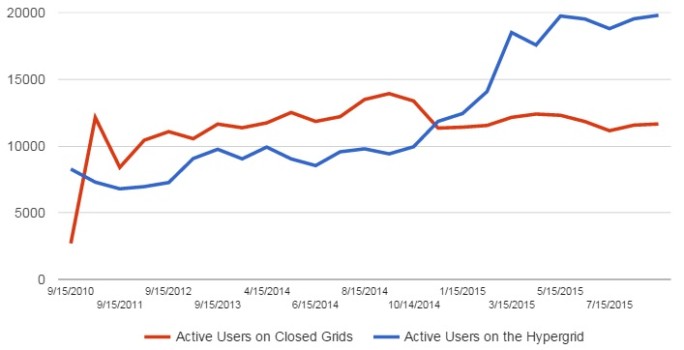
For some merchants, this isn’t a significant problem — they’d rather have the extra income from selling their content on the hypergrid, and the few people who would go to all the trouble of stealing it aren’t potential customers, anyway. And if the crooks try to distribute the stolen content and get successful at it, the creators can file DMCA notices and shut it down. To date, every major commercial grid has come out squarely on the side of being good citizens, protecting creator rights, and taking down infringing content when requested.
Other merchants are worried about losing control over their content, and want assurances that their products will be protected if they move to a new grid.
“As a grid owner, I hear Second Life content creators complain all the time how they will never come to OpenSim as it’s too easy for someone to steal stuff in OpenSim,” said Ford. “This is indeed very true in the current state of most grids.”
That puts commercial grids in a bind. On the one hand, residents want to be able to travel the hypergrid and take their stuff with them. On the other hand, some merchants don’t want content to travel. Plus, some commercial grids have proprietary content, customized for role playing games or other activities specific to that grid. They don’t want that content to travel, either.
A working export permission would solve all these problems. Commercial grids can turn on hypergrid connectivity, and merchants can decide whether to allow their content to be exported or not.
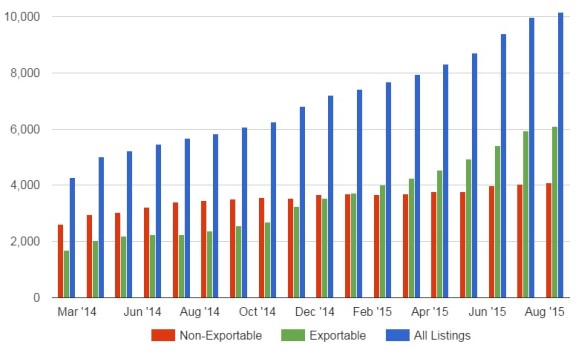
Some will experiment with both options, perhaps charging more for exportable content, and see what works best. This, in fact, is what’s been happening on Kitely Market, where merchants have a choice of allowing or not allowing exports and where an increasing number are choosing to allow it. This means that instead of selling just to Kitely residents, they can now sell to the residents of the 100-plus grids to which Kitely Market delivers content.
- OSgrid back online after extended maintenance - April 16, 2025
- Analysts predict drop in headset sales this year - March 25, 2025
- OSgrid enters immediate long-term maintenance - March 5, 2025
